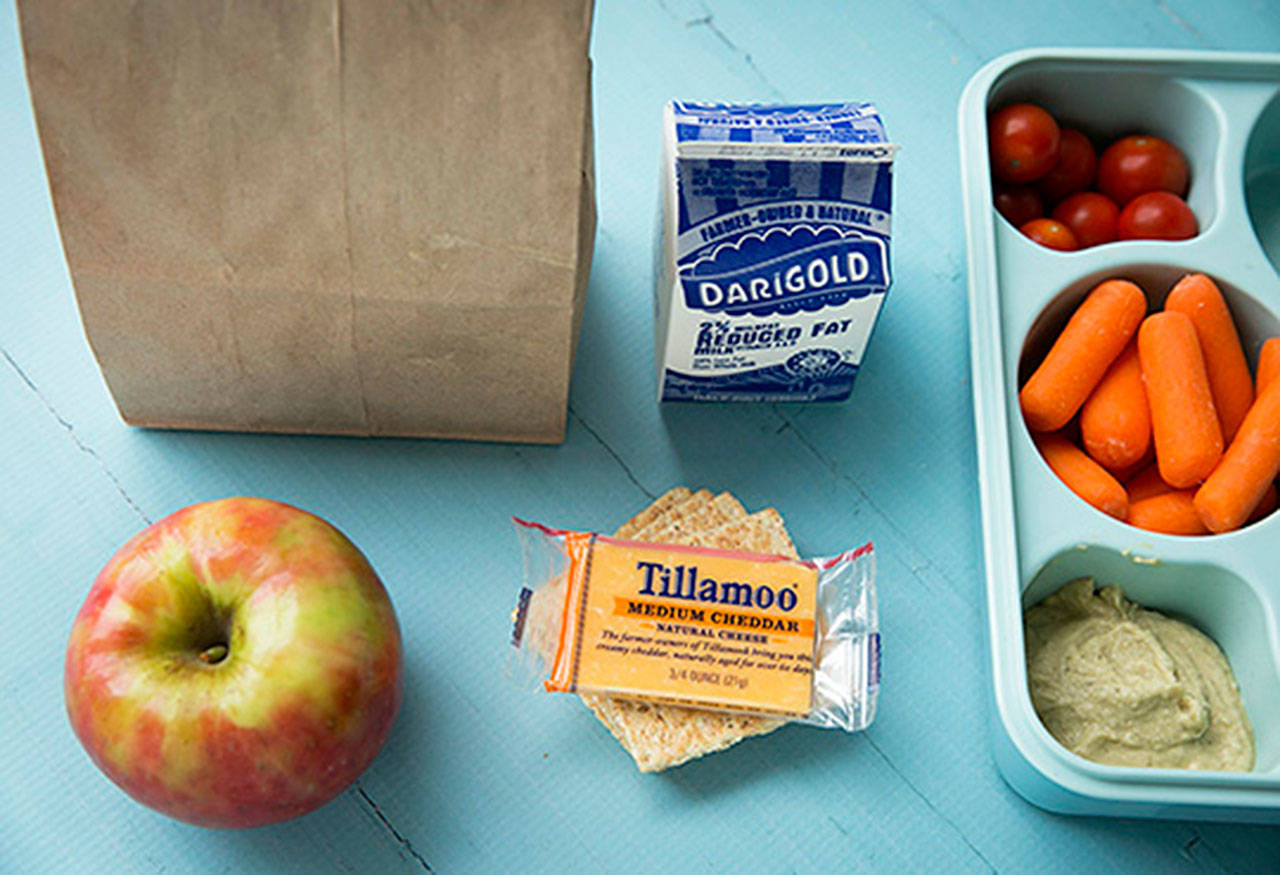It’s almost that time of year again. The early mornings, the homework, the busy schedules and most important, structured meals.
It’s easy to get overwhelmed with new schedules and making sure that your child is thriving throughout the new school year.
Here are some tips on maintaining sanity for you and your family as you prepare for September and beyond.
REESTABLISH A SCHEDULE
After the summer, your child may be used to staying up and sleeping in. It’s important to ease back into a school-year sleep schedule a few weeks before school starts.
Studies show that sleep will help your child focus throughout school – and getting adequate sleep actually helps fight obesity.
Preschoolers (3-5 years) should get between 11-13 hours of sleep per night plus one nap per day.
School-age children (5-10 years) should get between 10-11 hours of sleep/night.
START OFF THE DAY WITH A GOOD BREAKFAST
Studies have shown that children who eat a healthy breakfast tend to do better in school because they are able to concentrate better.
Children who eat breakfast tend to have fewer stomachaches due to hunger and higher calcium levels, both meaning fewer trips to the nurse’s office.
When preparing breakfast, remember to combine low fat dairy, whole grains, fruit and lean protein together for a quick nutritious meal.
Some ideas:
• Iron-fortified cereal with low-fat milk and cut-up fruit
• Peanut butter and banana slices on whole wheat toast
• Oatmeal with fruit
HAVE THE HOUSE STOCKED WITH HEALTHY SNACKS
Everyone knows that when you get hungry you tend to eat whatever you can get your hands on first. Try to keep the house stocked with healthy planned snacks so that when your child comes home, they are able to have a snack prior to dinner.
PLAN DINNERS AHEAD OF TIME
Like everything in life, it helps to plan, plan, plan. Make planning dinners an event for the household.
Remember this process is not just on you, so include your child in the decisions. This will help you know what they want to eat, and they’ll feel like they’re helping contribute to family meals.
Include your child on meal preparation and give them age-appropriate tasks to help with dinner:
3-5 years: Children love to help at this age, but still need supervision;
• Rinse produce in a bowl with water;
• Mix simple ingredients.
6-7 years: At this age, kids’ fine motor skills are developing and they can handle more complex tasks in the kitchen.
• Crack eggs
• De-seed peppers and tomatoes
8-9 years: Children’s skills tend to vary at this age, so give them tasks based on what they can handle.
• Rinse and clean vegetables
• Use a can opener
10-12 years:
Provide preteens with the ability to be independent with more responsibility, but be aware they still need occasional supervision and help.
• Boil pasta/vegetables
• Follow simple step-by-step recipes
You aren’t in this alone, but hopefully some organization and planning will help keep the upcoming school year as successful and calm as “back to school” can be.
MultiCare Health System is a not-for-profit health care organization with more than 18,000 employees, providers and volunteers.


